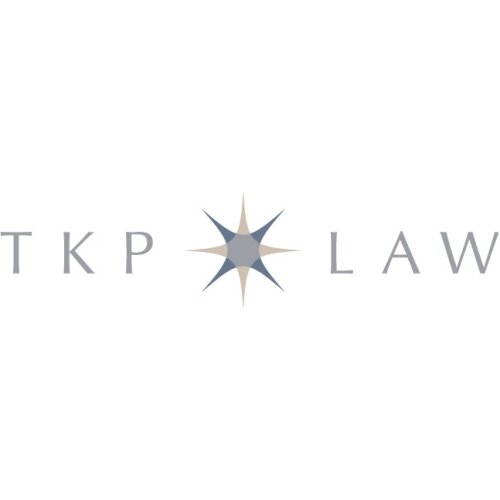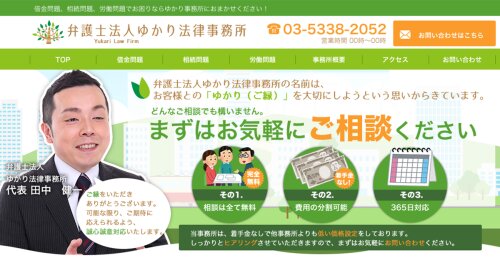Best Domestic Violence Lawyers in Tokyo
Share your needs with us, get contacted by law firms.
Free. Takes 2 min.
Free Guide to Hiring a Family Lawyer
List of the best lawyers in Tokyo, Japan
About Domestic Violence Law in Tokyo, Japan
Domestic violence (DV) is a significant issue in Tokyo, Japan, as it is worldwide. It encompasses a range of abusive behaviors within intimate or family relationships. In Japan, the Act on the Prevention of Spousal Violence and the Protection of Victims, effective from 2001, has been pivotal in addressing and mitigating the impacts of DV. This act provides protection orders and aims to support victims through various public and private services. In Tokyo, authorities are committed to increasing awareness and providing resources for victims of domestic violence to ensure their safety and well-being.
Why You May Need a Lawyer
If you or someone you know is experiencing domestic violence, seeking legal advice can be crucial for several reasons. A lawyer can help in understanding your rights and the legal remedies available. Legal representation may be necessary to obtain protection orders, resolve custody disputes, or navigate divorce proceedings impacted by abusive circumstances. Moreover, legal help can be essential for victims seeking compensation or who are embroiled in complex legal systems that involve both criminal and civil elements. In Tokyo, where legal procedures can be intricate and challenging to understand, a skilled lawyer can be invaluable in advocating for your safety and rights.
Local Laws Overview
Tokyo, along with the rest of Japan, adheres to national laws regarding domestic violence, primarily governed by the Act on the Prevention of Spousal Violence and the Protection of Victims. Under this law, victims can apply for restraining orders to prohibit their abuser from approaching or harassing them. Additionally, the Child Abuse Prevention Law is relevant when domestic violence involves children. Reporting is essential, and the police are equipped to provide immediate protection and facilitate intervention programs. Temporary shelters and counseling services are also mandated by law to support victims.
Frequently Asked Questions
What constitutes domestic violence in Tokyo, Japan?
Domestic violence includes physical, emotional, sexual, economic abuse, and stalking by a spouse or partner. It is recognized legally regardless of gender or marital status.
How do I obtain a protection order in Tokyo?
Victims can apply for a protection order through their local district court. Documentation of incidents and testimony may be required to support the application.
Can I report domestic violence anonymously?
While anonymous reports are possible, providing your identity can often result in more immediate and effective protection actions. Authorities are sensitive to privacy and victim safety.
What support is available for foreigners experiencing domestic violence in Tokyo?
Tokyo offers services such as multilingual hotlines and counseling support for foreign residents. Embassies may also provide assistance.
Is domestic violence against men recognized?
Yes, domestic violence against men is legally recognized, and protection measures are available for all victims irrespective of gender.
How can domestic violence affect child custody arrangements?
The court considers claims of domestic violence seriously when determining custody, as the welfare and safety of the child are paramount.
What are the penalties for committing domestic violence in Tokyo?
Penalties may include imprisonment, fines, mandatory counseling, and restraining orders. The severity depends on the nature and frequency of abuse.
Can I drop charges once I have reported domestic violence?
While victims can choose to drop charges, in some cases, especially severe incidents, authorities may continue prosecution to ensure public safety.
How quickly can I expect legal protection to be enforced?
Once a protection order is granted, it is typically enforced immediately. Emergency protection can be sought from the police for immediate threats.
What should I do if I'm falsely accused of domestic violence?
If falsely accused, it is crucial to seek legal counsel immediately to protect your rights and provide evidence supporting your claim of innocence.
Additional Resources
For those seeking help, Tokyo Women's Plaza, Women's Hotline Tokyo, and other shelters provide crucial support. The Tokyo Metropolitan Government's website lists services including legal aid, welfare support, and multilingual resources. The Japan Legal Support Center and local bar associations offer guidance on obtaining legal representation.
Next Steps
If you're in need of legal assistance concerning domestic violence, it is essential first to ensure your safety and contact the police or relevant protection services if in immediate danger. Document incidents of abuse and seek assistance from professionals, including lawyers specializing in domestic violence cases. Reach out to legal aid organizations for support and information on your rights as you navigate the legal processes to safeguard yourself and any dependents. Familiarize yourself with counseling services to support emotional and psychological well-being during this challenging period.
Lawzana helps you find the best lawyers and law firms in Tokyo through a curated and pre-screened list of qualified legal professionals. Our platform offers rankings and detailed profiles of attorneys and law firms, allowing you to compare based on practice areas, including Domestic Violence, experience, and client feedback.
Each profile includes a description of the firm's areas of practice, client reviews, team members and partners, year of establishment, spoken languages, office locations, contact information, social media presence, and any published articles or resources. Most firms on our platform speak English and are experienced in both local and international legal matters.
Get a quote from top-rated law firms in Tokyo, Japan — quickly, securely, and without unnecessary hassle.
Disclaimer:
The information provided on this page is for general informational purposes only and does not constitute legal advice. While we strive to ensure the accuracy and relevance of the content, legal information may change over time, and interpretations of the law can vary. You should always consult with a qualified legal professional for advice specific to your situation.
We disclaim all liability for actions taken or not taken based on the content of this page. If you believe any information is incorrect or outdated, please contact us, and we will review and update it where appropriate.















